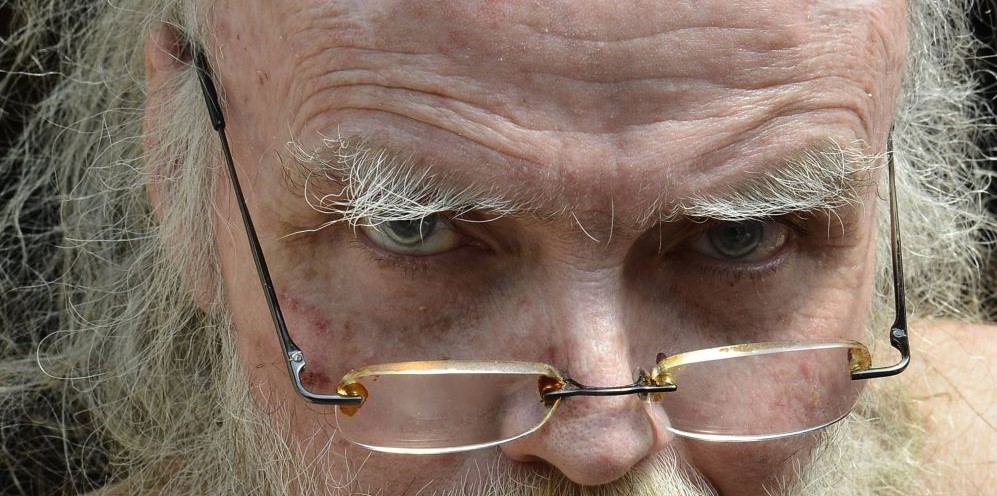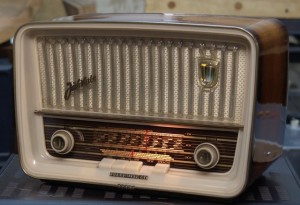When I was a child during the late nineteen forties into the fifties, our only family entertainment was the radio. Times where tough back then. To all intent and purpose, Britain was bankrupt and in a period of enforced austerity. It was still recovering from the ravages and deprivations brought on by the Second World War. Food was still being rationed. No one had much money.
One thing I absolutely loved to do was imagine what the people we used to listen to on the radio might actually look like. Far too often my childish imaginings were way off target whenever I saw a photograph of them in the Radio Times.
When I was ten, we finally got our first black and white television after we had emigrated to New Zealand in 1958. My favourite childhood activity of imagining what people looked like faded into the distance. For all of us the difference in the post war standard of living between New Zealand and here in Britain was startling. For the first time in their lives my parents had spare money left over each payday. Compared to what they had to put up with in Britain, New Zealand was and still is a paradise.
Apart from playing outside, being able to climb trees, go eel fishing. I made friends with the Jersey cow named Gwen that gave us fresh milk each day, plus making tree huts out of whatever was at hand. However, my main passion for reading, instilled into me by my parents from the age of four, meant that I still liked to imagine what a character, or characters, in the particular book I was reading at the time looked like. Even today, whenever I read any book I find myself creating a mental image of what those characters may look like, or at least how I would like them to look that is.
When I write a book, I conjour up mental images of my characters in my quest to get to know them intimately. Plus, having created that mental image, it makes it easier for me to work out what physical attributes to give them along with the various mental and emotional traits which are necessary for the reader to also imagine them. As their creator, you will soon find out which characters you like and which you loath. Even we writers don’t necessarily like every character we create. In that regard, people in books are really no different from people we all encounter during our lifetimes.
~~~
Continuing the twin themes of this post we now move on to observation. I don’t know about you but I like to observe people. Doing so is just another tool that I use when creating my characters.
Here’s a challenge for you. Could you pick out the writer from a crowd of people in the street? What does a writer look like? Is there anything about their physical makeup or their attire that says writer to you?
In my own case, on the extremely rare times when I leave the safety of this house to head to the corner shop, chances are that because of the way I look folk either ignore me, or having briefly observed me, simply pass me off as a dishevelled down and out and cross the road to avoid me. In their wildest imaginings it is safe to say that not one of them would make the connection between the individual they saw before them and the successful mid list writer that I have become, which suits me down to the ground. Why? Because most people are far too quick to judge others, often making completely incorrect assumptions.
Everyone except writers tend to make snap judgments about others. If writers were easily recognisable, we would all lose our anonymity and to a large extent our privacy which most of us value highly. If you’re passionate about writing, the last thing you need is to be constantly interrupted. From my personal point of view, there is a lot to be said for looking dishevelled. It doesn’t mean that I am someone to be avoided at all costs, far from it. It’s just my way of keeping people at arm’s length. I’m comfortable with who I am and the way I look…
😉



Reblogged this on Die Erste Eslarner Zeitung – Aus und über Eslarn, sowie die bayerisch-tschechische Region!.
LikeLiked by 1 person
Thanks for the reblog Michael 😉
LikeLike
Not so different than my childhood in the 50s, Cleveland, Ohio, USA.
LikeLiked by 1 person
🙂
LikeLiked by 1 person
I don’t think I would recognise a writer; the ones I know in real life would blend in with the crowds. Would we recognise our On Line writer friends if was saw them out in real life – probably not.
LikeLiked by 1 person
So much for your level of observation. 😉
LikeLiked by 1 person
Reblogged this on Have We Had Help? and commented:
Pay heed to what I say ye scurvey spalpeens!!!
LikeLike
My son-in-law can’t understand how I can follow football matches on the radio, without any visual clues.
LikeLiked by 1 person
Make him listen to a match with his eyes closed 😉
LikeLike